The cautious restarting of cross-strait academic exchanges
Cultural and academic exchanges between Taiwan and mainland China have restarted since being suspended due to the three-year-long pandemic. While official coordination of these exchanges are proving to be difficult to resume, it remains a priority, in particular for the mainland side. On the Taiwan side, wary of interference ahead of the Taiwan election, relevant authorities are tightening the scrutiny of mainlanders visiting Taiwan. Lianhe Zaobao journalist Miao Zong-Han tells us more.
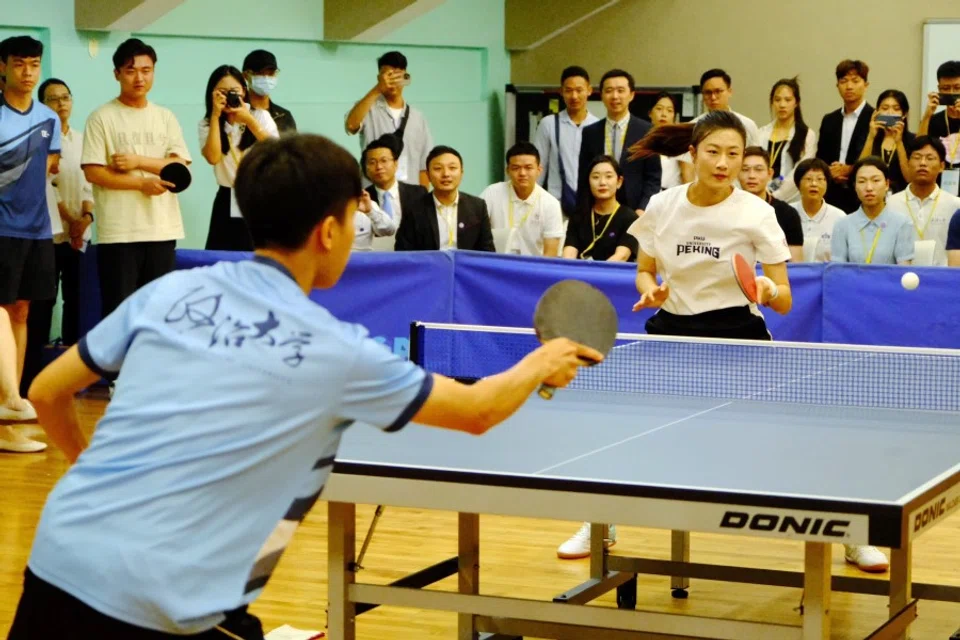
Cross-strait academic exchanges have resumed during the first summer break since anti-Covid measures were lifted, with former Taiwan President Ma Ying-jeou welcoming mainland students to Taiwan - a first after the pandemic.
However, as the campaign for the 2024 presidential election in Taiwan unfolds, Taiwan officials are tightening their scrutiny of mainlanders entering the island, adding a layer of uncertainty to these exchanges.
In addition, Taiwan academics have also observed that while the mainland wants to expand exchanges, the stagnation of exchanges between the official departments on both sides of the Taiwan Strait due to the three-year-long pandemic has led to coordination problems. As a result, the facilitation of these exchanges has been difficult.
Academic exchanges on both sides
After the Chinese Communist Party (CCP)'s 20th Party Congress last year, along with the easing of anti-Covid measures and border reopening, the mainland has adjusted its Taiwan policy with a focus on the expansion of cross-strait exchanges. At a Taiwan Work Conference in May, Chinese People's Political Consultative Conference chair Wang Huning called for the gradual resumption and expansion of cross-strait exchanges.
Academic exchanges between both sides of the Taiwan Strait have gradually resumed since April, with the mainland's Taiwan Research Institute of Xiamen University, Shanghai Institutes for International Studies, as well as Taiwan's College of Social Sciences at Chinese Culture University and the College of International Affairs at Tamkang University co-hosting seminars in the mainland one after another.
... although cross-strait people-to-people exchanges have gradually resumed and the depth and breadth of academic exchanges have surpassed pre-pandemic levels, cross-strait tensions have yet to ease. - Bao Chengke, assistant director of the Institute for East Asian Studies in Shanghai
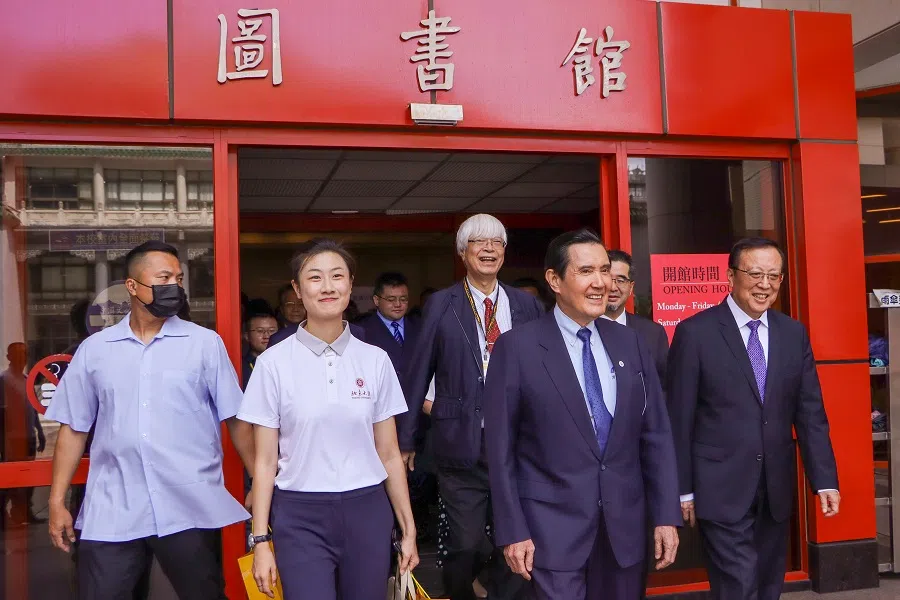
With the start of the summer break in late June, these academic exchanges have further expanded. On 28 June, the Institute of Taiwan Studies in the Chinese Academy of Social Sciences, the mainland's most representative government-backed think tank on Taiwan, organised a conference in Zhejiang's Huzhou. Around 60 academics from both sides of the Taiwan Strait were invited to share their views on "cross-strait relations under the new development trend" (新发展格局下的两岸关系).
Bao Chengke, assistant director of the Institute for East Asian Studies in Shanghai, told Lianhe Zaobao that although cross-strait people-to-people exchanges have gradually resumed and the depth and breadth of academic exchanges have surpassed pre-pandemic levels, cross-strait tensions have yet to ease. This comes especially as Taiwan's 2024 presidential race gets into full swing in the later half of the year, which will have a more obvious impact on the cross-strait situation.
In turn, he noted that most of the recent cross-strait academic exchanges have focused on the future of cross-strait relations and Taiwan's presidential election. "The 1992 Consensus has naturally become an important topic," Bao added.
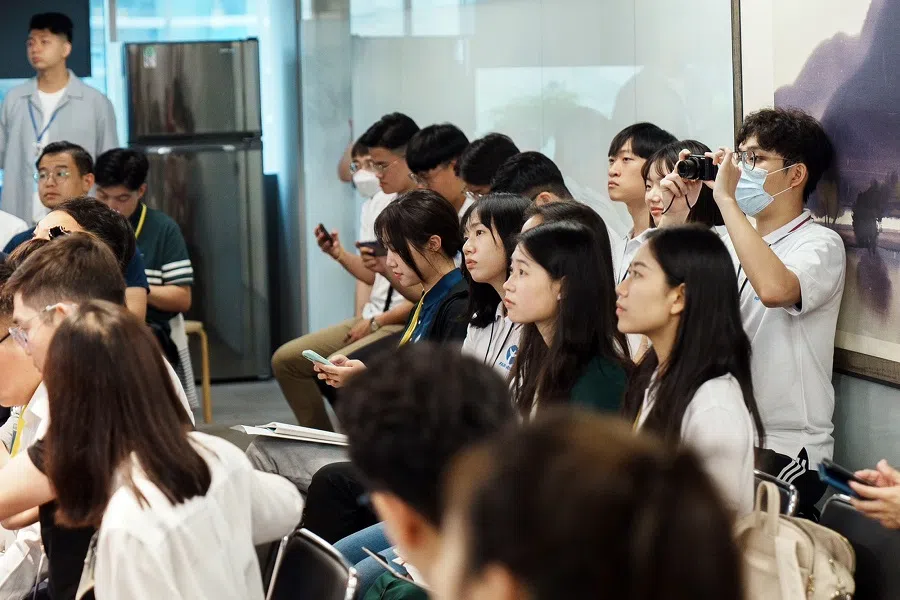
Bao said that the mainland is keeping a close eye on the Taiwan elections, especially the cross-strait policy of various parties, as this will affect the mainland's future policy attitude towards Taiwan. But he stressed that the mainland will not interfere with the Taiwan elections.
... Taiwan's Mainland Affairs Council spokesperson Jan Jyh-horng said on 13 July that with the unfolding of the Taiwan elections, Taiwan officials are worried that the CCP may interfere.
Avoiding politically sensitive topics
In addition to the active resumption of cross-strait exchanges among academic institutions in coastal provinces and cities in mainland China, in early July, Renmin University of China's School of International Studies in Beijing also resumed its annual conference, which had been running for 19 years, in conjunction with National Chengchi University's Graduate Institute of East Asian Studies.
Kou Chien-Wen, director of National Chengchi University's Institute of International Relations, who attended the conference, told Lianhe Zaobao that mainland academics indeed focused on the Taiwan elections during their exchanges. However, some mainland academics also told him that the mainland side is not as concerned with the Taiwan presidential candidates' rhetoric during the electoral campaigns as they are with the candidates' actions after the election - the only bottom line is that they "oppose 'Taiwan independence'".
While the mainland continues to welcome Taiwan people from all walks of life to visit the country, Taiwan's Mainland Affairs Council spokesperson Jan Jyh-horng said on 13 July that with the unfolding of the Taiwan elections, Taiwan officials are worried that the CCP may interfere. Hence, it is necessary for relevant authorities to tighten the scrutiny of mainlanders visiting Taiwan in accordance with existing procedures.
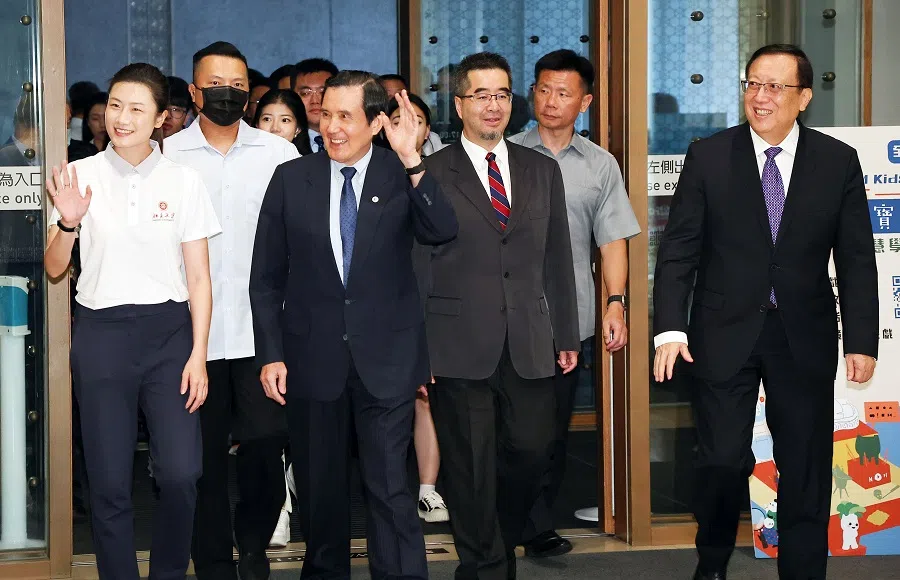
Amid this context, a student exchange group from five mainland Chinese universities visited Taiwan on the invitation of the Ma Ying-jeou Foundation. They were required by the Taiwanese authorities not to engage in any political activities or anything unrelated to the purpose of their visit.
The mainland Chinese students asked how Taiwanese students participate in baseball and basketball events, and the male-to-female student ratio in the university, while consciously avoiding politically sensitive topics.
Since arriving on 15 July, the exchange group has focused on experiencing Taiwan's culture and engaging in student life activities. The delegation attended a baseball game and participated in joint performances of traditional Chinese music with Taiwanese students, while former Olympic gold medalist Ding Ning in the mainland delegation interacted with Taiwanese students to share about table tennis.
On 17 July, the group held their first closed-door discussion with Taiwanese students at the National Chengchi University. The mainland Chinese students asked how Taiwanese students participate in baseball and basketball events, and the male-to-female student ratio in the university, while consciously avoiding politically sensitive topics.
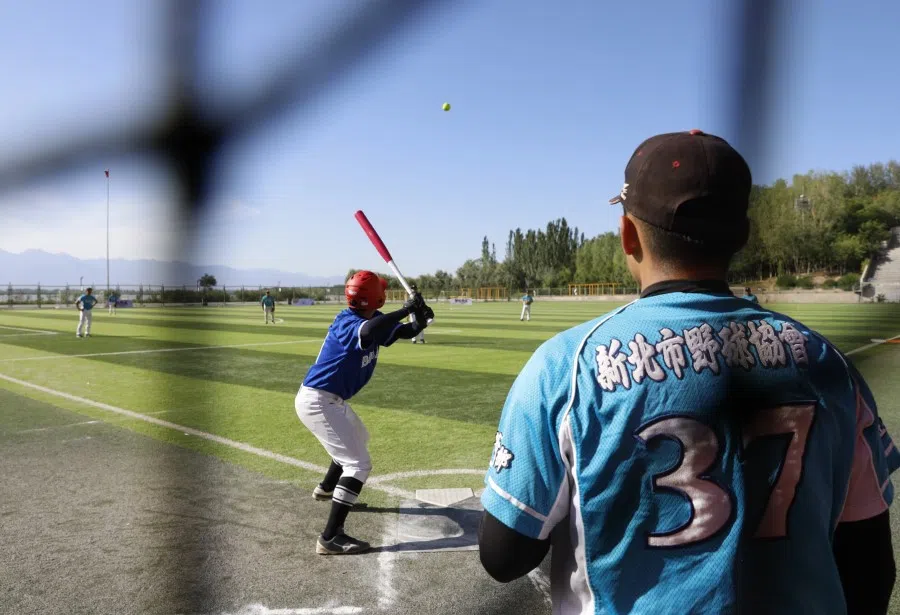
On the other hand, the Taiwanese students were curious about the mainland students' views on societal issues such as excessive competition or "involution" (内卷), their impressions of Taiwanese people, along with their take on the "Chinese dream".
In response to the Taiwanese students' sharp questions, the mainland students explained involution by attributing it to mutual competition and a strong desire for excellence. As for the other two questions, they stuck to the official stance, emphasising that both sides are one family and should work together for the great rejuvenation of the Chinese nation.
... prior to the Taiwan election, the Taiwanese authorities would most likely strengthen their scrutiny of mainland Chinese visiting Taiwan, resulting in fewer mainlanders visiting Taiwan while more Taiwanese visit mainland China. - Kou Chien-Wen, director of National Chengchi University's Institute of International Relations
Challenges to resuming cross-strait exchanges
Bao Chengke noted that considering the tense cross-strait relations and to avoid raising any unnecessary issues, the mainland exchange group made careful preparations and arrangements to enable minimal political exchanges between the students, to show goodwill from mainland China.
Kou Chien-wen said that cross-strait youth exchanges are necessary, especially since mainland university students nowadays lack the special sentiments towards Taiwan that earlier generations of mainland students had. Meanwhile, Taiwanese students belong to the generation that believes in Taiwan's natural independence. Without understanding each other, the risks between the two sides will only increase.
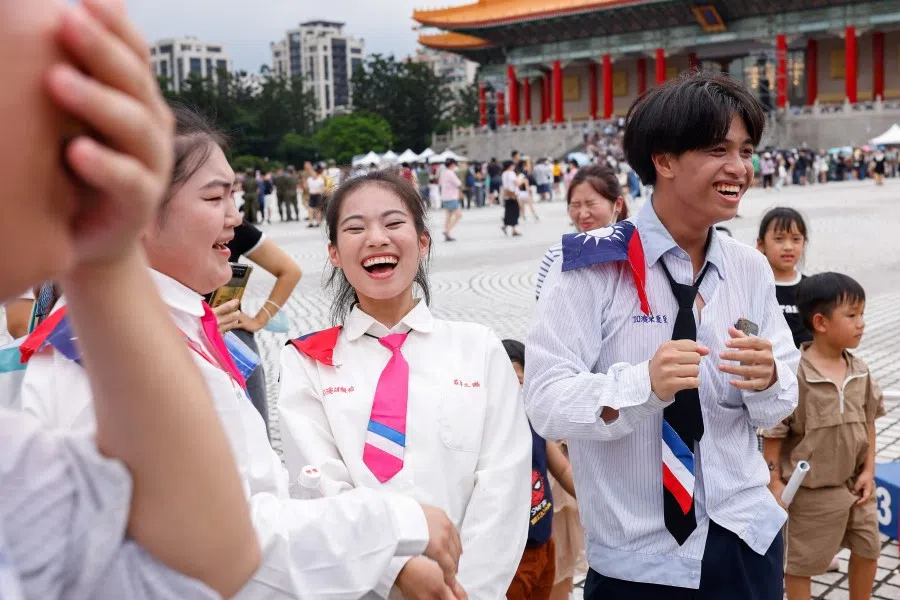
During the closed-door discussion with the mainland China students on 17 July, Kou also called for both sides to approach the exchanges with the spirit of "friendship, sincerity, empathy and mutual understanding", and to consider each side's sensitivities and avoid taboo subjects.
As for trends in cross-strait exchanges, Kou assessed that prior to the Taiwan election, the Taiwanese authorities would most likely strengthen their scrutiny of mainland Chinese visiting Taiwan, resulting in fewer mainlanders visiting Taiwan while more Taiwanese visit mainland China.
However, he observed that the 2019 Hong Kong anti-extradition bill protests somewhat cooled the Taiwanese people's willingness to visit mainland China. And after the pandemic over the past three years, government departments in mainland China are facing difficulties in coordinating the restart of the suspended exchanges, making the promotion of cross-strait exchanges more challenging.
Kou feels that besides these factors, mainland China should also look at whether the current exchanges are about the number of trips made or the number of people visiting. If the many activities and visits are participated by the same group of people, it might be difficult to break through the echo chamber and gain a deeper understanding of the diverse viewpoints in Taiwan.
This article was first published in Lianhe Zaobao as "两岸学界恢复实体互动 台湾选战为交流添变数".


![[Big read] When the Arctic opens, what happens to Singapore?](https://cassette.sphdigital.com.sg/image/thinkchina/da65edebca34645c711c55e83e9877109b3c53847ebb1305573974651df1d13a)


